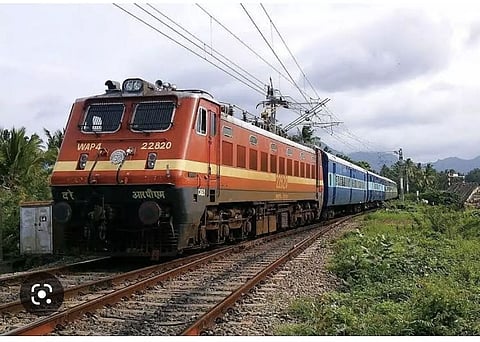
- Home
- Live Blog
- Breaking News
- Top Headlines
- Cities
- NE News
- Sentinel Media
- Sports
- Education
- Jobs

NEW DELHI : Indian Railways is set to play a major role in India's Nationally Determined Contributions (NDC) towards fighting Climate Change. The Indian Railway on Wednesday stated that, it has planned to attain net zero carbon emission by the year 2030. IR will try and reduce its carbon footprint through adopting renewable energy sources. Several measures has been adopted by the Railway ministry to achieve this goal.
The Indian Railway has decided to take up initiatives that include energy efficiency management, renewable source of energy, conservation of water, planting tress as much as possible in railway land, water management and green certifications. Approximately 142 MW of solar plants and 103 MW of wind power plants have been accredited till 31st of October 2022. The Railway ministry report also stated that, the usage of insulated gate bipolar transistor (IGBT) based 3 phase propulsion system along with regenerative braking in engines have already started.
Apart from this, electrical multiple unit trains (EMU), mainline electric multiple unit trains (MEMU) and electric trains have been included in the scenario. Afforestation around railway land was also adopted by the ministry for increased carbon sink. In order to reduce pollution the railways have initiated several other steps such as- converting the generation train to head on generation trains, this also minimise diesel consumption.
In order to reduce electricity consumption, the ministry adopted LED lighting in the railway stations, service infrastructures and residential buildings. Green certifications of several industries, railway stations have been initiated. Along with this, the railway ministry made sure to adopt environmental management system certification of many stations. Waste-to-energy plants have been set up and building of both eastern and western dedicated freight corridors has been initiated. The Indian Railway is also planning to opt for renewable energy in order to minimise energy consumption.
In the year 2020, PwC India collaborated PwC network firms with a goal to achieve net zero greenhouse gas emissions by 2030.
Also Watch :